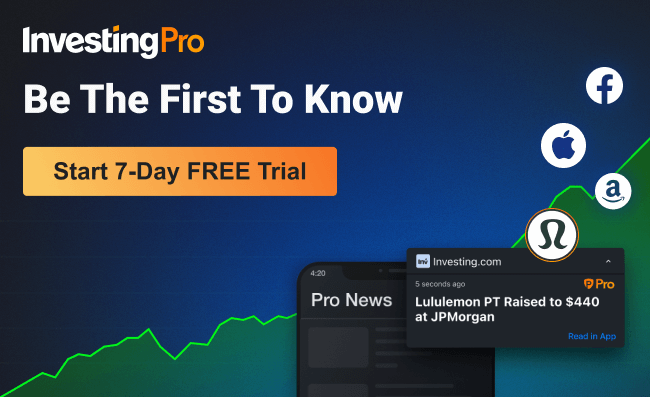- After an initial success, Instacart's IPO turned out to be a relative flop
- The stock opened up over 40% on the day of its IPO but reversed its gains the following day
- Instacart faces strong competition in a low-margin environment, among other challenges
- Looking for a helping hand in the market? Members of InvestingPro get exclusive ideas and guidance to navigate any climate. Learn More »
-
Delivery fees: Instacart levies delivery fees on customers for grocery and collection orders, with the fee structure contingent on various factors, including order value and delivery speed.
-
Subscription services: Instacart provides subscription services with annual or monthly pricing alternatives. Subscribers enjoy a range of advantages, such as waived delivery charges and reduced service fees, fostering robust customer loyalty.
-
Advertising revenue: Instacart generates revenue through advertising aimed at its platform's monthly active users. In 2022, advertising revenues reached $740 million, constituting 29% of the company's total revenue.
-
Partnerships with retailers: Instacart collaborates with over 1,400 retailers, encompassing major brands like Kroger (NYSE:KR), Costco (NASDAQ:COST), and Albertsons (NYSE:ACI), effectively covering 85% of the US grocery market. These partnerships empower retailers to efficiently reach customers via the Instacart platform.
Following an initial success, Instacart's (NASDAQ:CART) IPO proved to be a relative disappointment. The stock opened with an impressive 40% surge on the day of its Nasdaq debut, only to reverse those gains on the subsequent day.
One of the primary challenges confronting the San Francisco-based unicorn startup is the fierce competition within the low-margin grocery delivery sector. The company contends with rivals such as DoorDash (NYSE:DASH) and Uber (NYSE:UBER), both offering food delivery services.
Additionally, it faces other delivery services operating under distinct models, including meal kit providers like Blue Apron (NYSE:APRN) and catering services like Postmates. This highly competitive landscape has rendered it increasingly arduous for Instacart to maintain its market share, a factor clearly reflected in its valuation.
A Buying Opportunity?
Instacart's IPO valuation of approximately $10 billion stands at nearly four times less than its peak valuation of $39 billion reached during the zenith of the COVID-19 pandemic in 2020. The substantial drop in the company's worth can be ascribed to several factors, including the likelihood that the $39 billion valuation in 2020 was inflated due to the extraordinary circumstances of the pandemic. During that period, there was a surge in demand for grocery delivery as consumers sought alternatives to in-store shopping, a trend that has since waned.
Numerous analysts have voiced concerns regarding the company's capacity to sustain growth in the face of intensifying competition. For instance, Needham issued a Neutral rating on Instacart shares, citing apprehensions about heightened competition and a potential deceleration in the growth of online grocery sales. Gene Munster, Managing Partner at Deepwater Asset Management, also expressed skepticism about Instacart's growth prospects, especially when juxtaposed with companies like Uber.
To assess Instacart's investment potential comprehensively, it is imperative to comprehend its diverse revenue sources:
Instacart's Financial Performance
Assessing Instacart's financial performance is also of paramount importance:
As per Instacart's pre-IPO S-1 filing, the company reported a net profit of $428 million in 2022, marking a substantial turnaround from the $74 million loss incurred in 2021.

Source : InvestingPro
The company also reported a 39% increase in revenues, generating $2.55 billion in 2022.
Source : InvestingPro
Certainly, Instacart underscored its dedication to profitable growth in its IPO prospectus, showcasing multiple quarters of profitability preceding the IPO. The question that lingers, however, is whether this can endure in the long term, given the prevailing challenges.
Bottom Line
While Instacart's IPO event captured investors' interest, its performance during its initial two days on the stock market has been, to put it mildly, mixed.
Moreover, while the company has showcased profitability and growth in recent quarters, its valuation has markedly declined from the peaks observed during the 2020 pandemic. Additionally, Instacart grapples with an intensifying competitive environment, evolving consumer preferences, and inherent challenges within the grocery industry.
As a result, it is advisable for investors to exercise prudence and refrain from active engagement with the stock for the present moment.
***
Disclosure: The author holds no active position in any of the instruments mentioned in this report.

